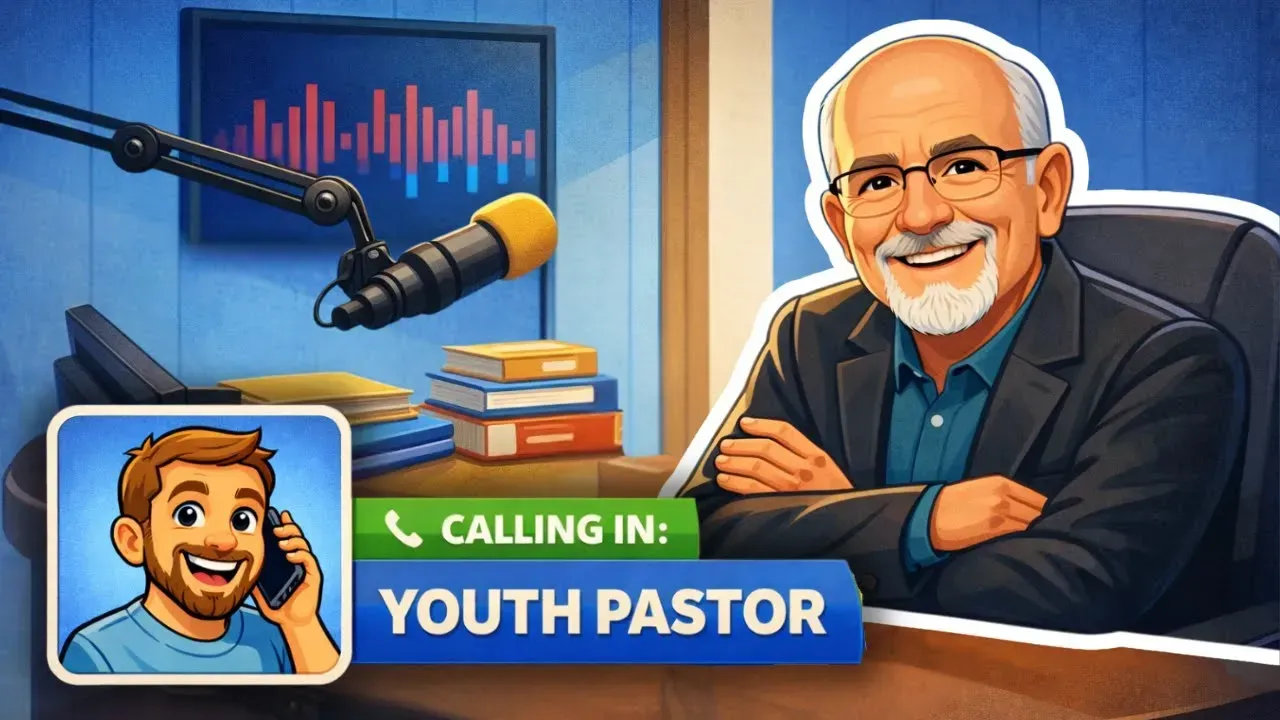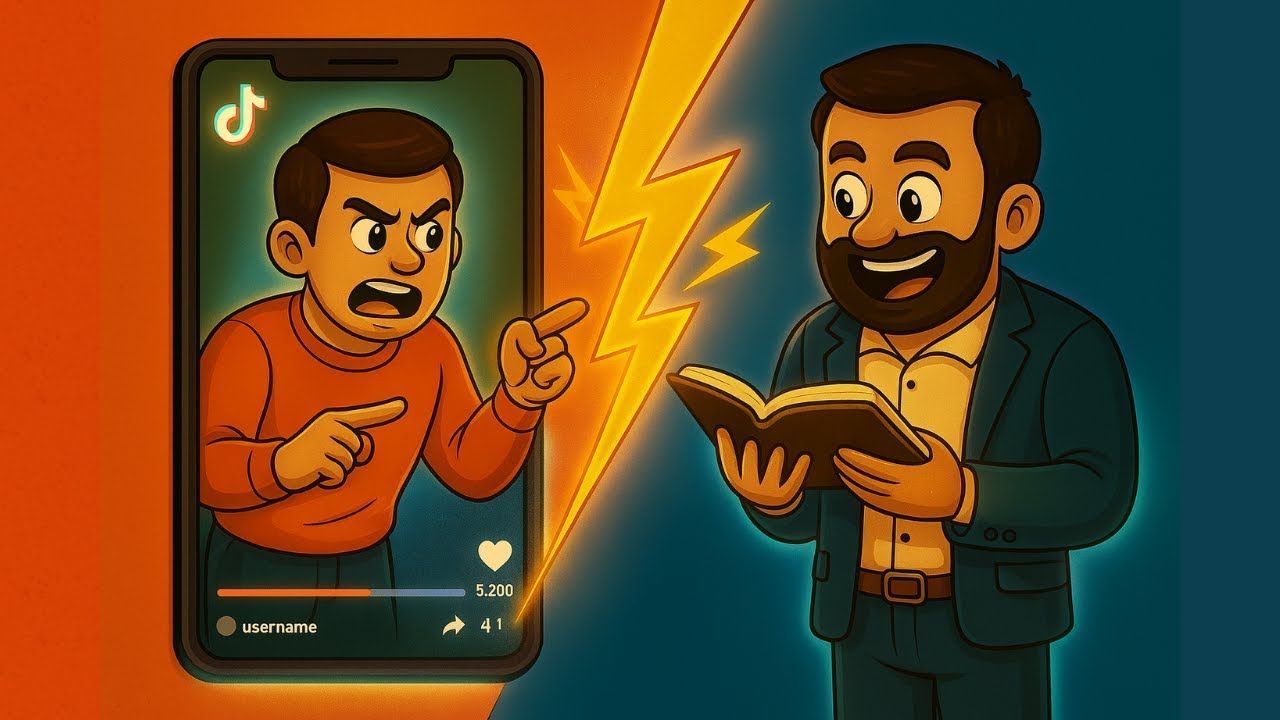Teen Brains Are More COMPLICATED Than We Thought | BTYR Ep. 83
Understanding the Teenage Brain:
5 Key Insights for Youth Ministry
(and Why it's Not Always Your Fault!)
Check out the podcast here!
Ever feel like you're pouring biblical truth into teenagers week after week, only to see them walk away seemingly unchanged? You're not alone. But what if the reason isn't necessarily you or your teaching? What if it has more to do with what's going on inside their developing brains? Today, we're diving into the fascinating world of adolescent brain development and exploring five crucial things every youth pastor and leader needs to understand to better connect with and disciple the next generation.
1. The Developing Prefrontal Cortex: The Steering Wheel is Still Under Construction
The prefrontal cortex, the front part of our brain responsible for decision-making, impulse control, and long-term planning, isn't fully developed until at least the mid-twenties. This means teenagers may know what's right, but they can struggle to consistently follow through.
Think about it: have you ever had a seemingly bright student do something that made your jaw drop? As adults, we can often logically break down a decision-making process. We ask, "Help us get from point A to point B. How did you make this decision that led to this?" But for teenagers, the steps can sometimes feel like a blank slide.
Instead of asking "Why did you do that?" which often yields a blank stare, try asking "Why is that wrong?". This helps them connect their actions to moral principles. Consider the real-life example of teenage boys repeatedly dropping apples into an AC unit until it broke. When asked why, the answer was simply, "I just want to see how many they could chop up." There wasn't a logical reason. But asking why it was wrong – the $7,000 repair bill – helps connect the dots.
2. The Amygdala Takes the Lead in Emotions: High Horsepower, Underdeveloped Steering
The amygdala, the emotional center of the brain, develops earlier than the rational center. This means teenagers often react emotionally before thinking logically. It's like putting a teen behind a high-horsepower engine with an underdeveloped steering wheel – lots of power, but not always the best control.
This insight sparked a lot of discussion when we touched on it previously. Some might see this as an excuse to lower expectations, while others might push back, asking why we aren't expecting more. But the key is understanding how they process emotions. A teenage breakup can feel like the end of the world. Intense grief can seemingly be followed by carefree fun with friends, not because they don't care, but because their emotional responses can be so immediate and overwhelming.
This doesn't mean we leave them to their own devices. In fact, a hands-off approach might be contributing to the struggles we see. Just because their rational minds are still developing doesn't mean we stop guiding them. Instead, we need to provide consistent modeling and clear boundaries to help them navigate their powerful emotions.
3. Wired for Risk and Reward: The Thrill-Seekers for God's Kingdom
Teen brains have heightened dopamine responses, making them more motivated by novelty, peer approval, and reward. This also makes them more prone to risky behavior. But what if we could channel this inherent wiring for good?
Instead of just telling them to avoid worldly risks, we can challenge them to take risks for the Kingdom! They have a natural inclination to go all-in. Imagine if they directed that energy towards radical love for their neighbors and a passionate pursuit of God. As adults, we often become more risk-averse, but teenagers have a unique capacity to live like they can't fail when it comes to their faith.
They are looking for a place to take risks. If we constantly shut down every impulse and adventurous idea, they'll simply look for those thrills elsewhere, perhaps in less healthy ways. Remember the story of playing "freeze out" in a car in the middle of winter, leading to pneumonia? It wasn't logical, but the thrill of the challenge was the driving force. Youth ministry can be a safe place to explore healthy "risks" in faith and service.
4. Identity Formation is Their Mental Priority: Who Am I and Where Do I Fit?
For teenagers, the questions of "Who am I?", "Do I matter?", and "Where do I fit?" are paramount. Their brains are actively shaping their sense of self, purpose, and belonging. As youth leaders, we have the incredible opportunity to minister during this crucial time, providing answers rooted in God's truth.
This intense focus on identity can also explain some of the challenges we see regarding gender and sexuality. These are deeply tied to one's sense of self. The Gospel offers a powerful and true identity: in Christ, we are sons and daughters of the King. This understanding can provide a solid foundation amidst the shifting sands of cultural trends.
5. Learning Best Through Experience and Relationships: Hands-On and Heart-to-Heart
Teenagers don't learn best through endless lectures. Their cognitive development is amplified through hands-on experiences and relational connections. Didactic teaching alone often falls short.
Think about it: if you knew teenagers learned best through doing and connecting, what would your youth ministry look like? You'd likely see object lessons, team-building activities that illustrate spiritual truths, and plenty of opportunities for discussion and interaction, not just rows of chairs facing a speaker.
This isn't to say that teaching and preaching aren't important, but we need to be more creative in how we deliver God's Word, making it experiential and relational. This approach aligns with how their brains are naturally wired to learn and grow.
It's Not Just You, It's Their Brains (But That Doesn't Mean We Do Nothing!)
Understanding the developing teenage brain can be a game-changer for youth ministry. It helps us approach their behaviors and struggles with more empathy and develop more effective strategies for discipleship. Remember, it's not always about what you're teaching, but how their brains are processing that information.
For a broader perspective on the state of youth ministry, we highly recommend checking out our interview with Greg Steer, "Youth Ministry is Broken and How We Can Fix It." We'll put a link in the description.
If you found value in this episode, please like, share, and subscribe! Your support helps us continue equipping leaders to gospelize their students and change the world. We're thankful for your dedication and look forward to seeing you in the next episode.











